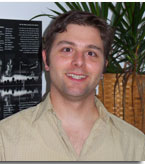Reflecting on Learning and Instructional Difficulties Seminar
Hosted by the Preceptor Group





Not pictured: Robin Gottlieb, Janet Chen
Introduction
Teaching is a significant component of most mathematicians' careers. Just as future lawyers and doctors must study and train to become more proficient in the skills needed for their professional careers, future mathematicians must study and train to improve their teaching skills. The goal of the Reflecting on Learning and Instructional Difficulties Seminar is to provide opportunities during the semester to discuss and reflect on teaching philosophies and practices in order to become better teachers now and to prepare for the teaching activities which will be part of future professional careers.
The seminar presentations and discussions are designed primarily for mathematics graduate students, but anyone interested in mathematics teaching is welcome to attend. We will be examining teaching by reading and discussing case studies developed at Boston College.
Please direct any comments or questions about the seminar to Mathematics Preceptor Bret Benesh (benesh [at] math.harvard.edu).
Upcoming Sessions
-
 What were they thinking?:
What were they thinking?:
Expectations and Attitudeswith Bret Benesh, Preceptor at Harvard University
October 19, 2006, 2:30 to 4 p.m.
Location: SC 530Hugh Brightman, a second year graduate student, is teaching his own Calculus II class under faculty supervision after a successful year as a TA for a recitation section in a large class taught by a professor. Although not many students have been coming to his office hours, Hugh is confident that they are well prepared for his first hour exam. He is shocked when he discovers that they don't seem to have learned even the most basic techniques and concepts.
Issues:
- How to gauge the real extent of student understanding;
- How to gauge the difficulty of an exam before one gives it ;
- Dealing with a disastrous exam;
- Ways to raise the mathematical level of a class and make it interesting;
- Balancing graduate mathematics studies and teaching responsibilities;
- The difference between the roles of recitation section instructor and course instructor;
- Explaining the concept of half-life.
-
 Studying the
Exam:
Studying the
Exam:
Assessmentwith Thomas Judson, Preceptor at Harvard University
November 16, 2006
Lecture: 2:30 to 4:00 pm
Location: SC 530
This case asks participants to create a 50 minute exam based on a list of sample questions. Some of the questions exhibit various pitfalls a test writer might fall into, such as stating a problem unclearly, stating a problem so that poor understanding will produce a better partial answer than a slightly mistaken understanding, writing a problem which is very difficult to grade, and not considering the approaches which are possible if a calculator is allowed on the exam.
Issues:
- Writing a good exam:
- how to probe student understanding and misunderstanding,
- fairness,
- time concerns,
- grading concerns,
- use of technology.
-
Pairing Up:
Classroom Managementwith Robin Gottlieb, Senior Preceptor at Harvard University
December 7, 2006
Lecture: 2:30 to 4:00 pm
Location: SC 530
A TA running a discussion section for a course in integral calculus decides to foster her students' independent thinking skills by having them work together in pairs. She is worried that the students too often rely on her to provide them with the answers. However, the pairing exercise does not go as smoothly as she had hoped, for a variety of reasons. She is left wondering how to organize the future discussion hours.
Issues:
- How to best allocate discussion section time;
- Advantages and drawbacks of group work;
- Management of a discussion section involving group work;
- How to help students see errors in their own work for themselves;
- How to conclude a section involving group work;
- TA self-evaluation --- how to tell if a given approach worked or not.
-
 Study Habits:
Study Habits:
Motivationwith Angela Vierling-Claassen, Preceptor at Harvard University
February 8, 2007
Lecture: 4:00 to 5:30 pm
Location: SC 232
Angelica, a graduate student from another country, is teaching a section of second semester Calculus. She has high expectations for the students in her class and is concerned over their poor performance to date. Angelica tries to boost her students' sagging study habits by introducing a draconian regime of quizzes, mid-semester. She is met with bemused indifference from the supervising professor, and outright indignation from her students
Issues:
- Motivating students to study and do homework;
- The role of examinations and other methods of assessment in effective teaching; classroom management;
- Professor / graduate instructor relations;
- Teaching sections of a multi-section course with a set syllabus and common examinations;
- Changing the grading contract mid-term; international graduate student expectations of U.S. undergraduates.